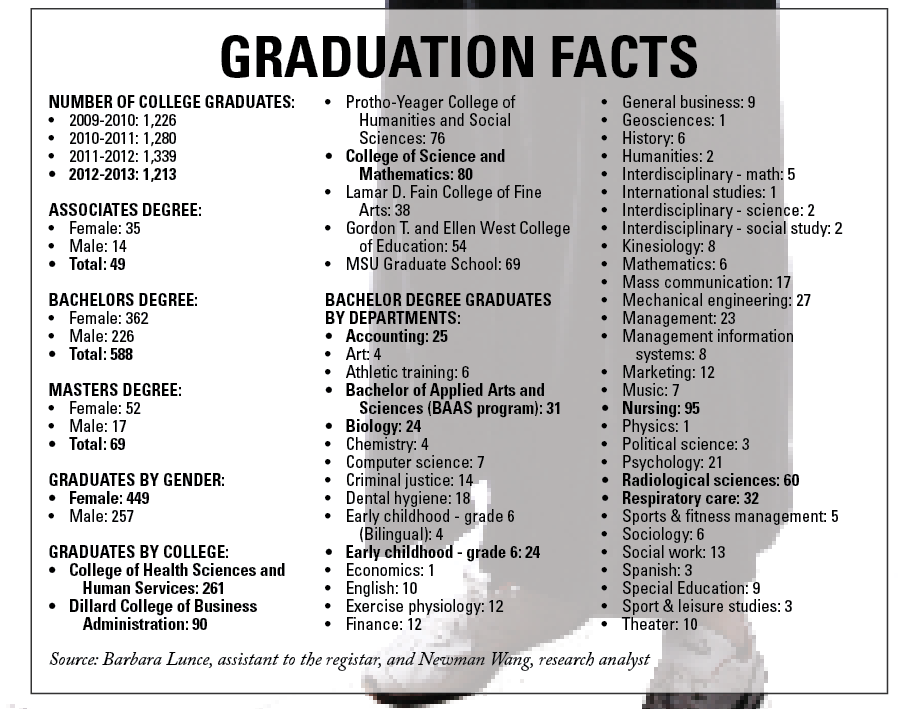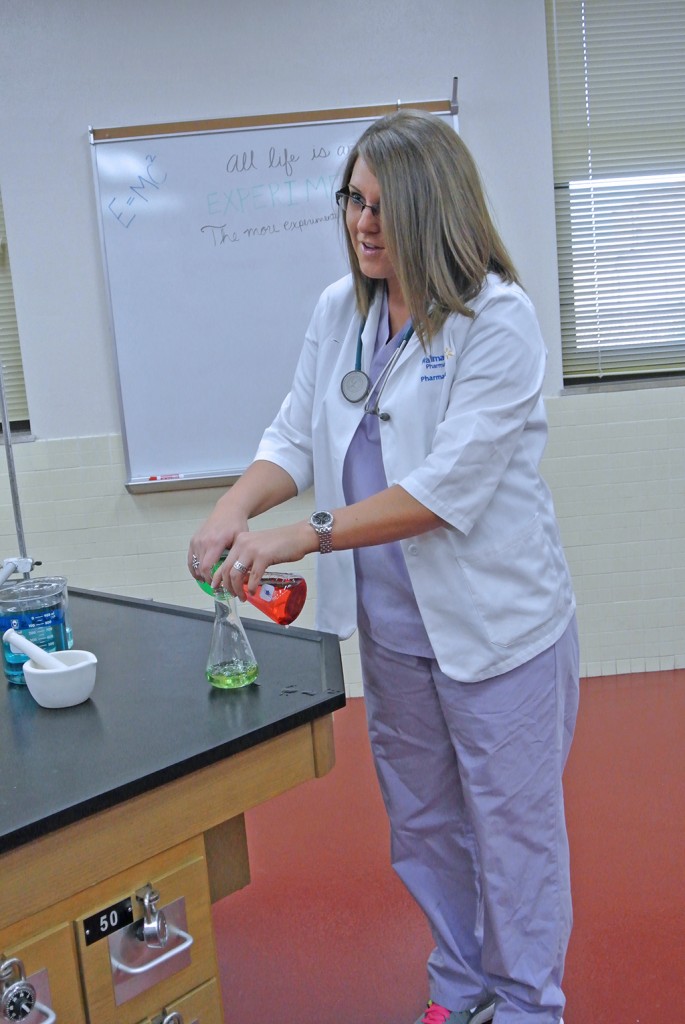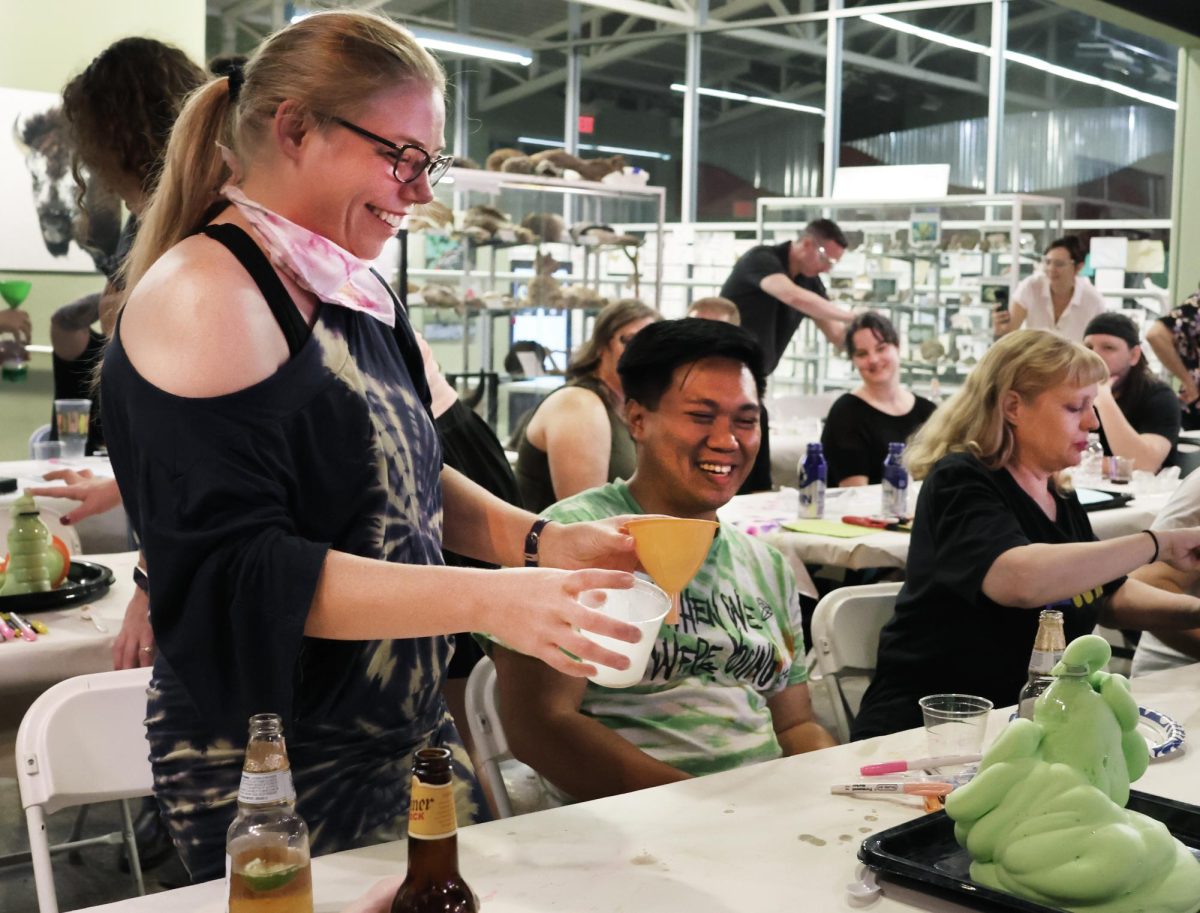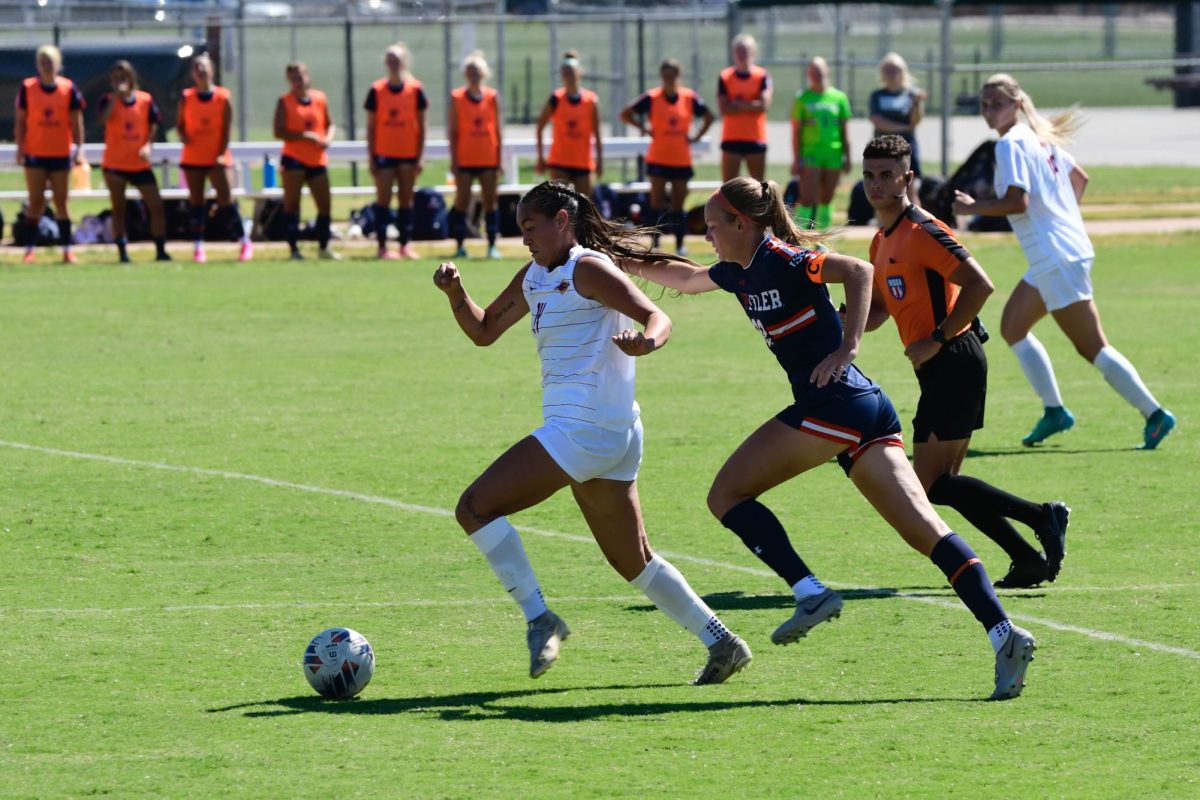College of Health Sciences and Human Services produces most graduates with 261 students
 With three days of classes and a week of finals left in the spring semester, nearly 700 graduates will complete their undergraduate careers.
With three days of classes and a week of finals left in the spring semester, nearly 700 graduates will complete their undergraduate careers.
According to Newman Wong, research analyst, the number of graduates is actually less than 706 because if students get two different degrees, they will be counted twice.
The College of Health Sciences and Human Services produced the highest number of graduates, at 261, while the Lamar D. Fain College of Fine Arts had the fewest, at 38.
Departments with the highest number of graduating seniors are nursing, respiratory care and radiological sciences.
According to Ann Medford, chair of the respiratory department, the department’s number of graduating seniors has held steady over the past five years for many reasons.
“We keep our class limited to 24 students due to clinical requirements,” she said. ‘Our program is a 2+2 program, meaning that the students take their core and prerequisite courses for the first two years.”
According to Medford, the program has retained between 22 ad 24 students for the past five years and it recently sent out acceptance letters to 24 students to begin the program in July 2013.
“I expect the numbers to remain consistent for the foreseeable future as the health-care worker shortage continues,” she said.
Medford explained that it is unfortunate that many students are simply uninformed about the baccalaureate program at MSU, and in fact, don’t even know what respiratory therapists do.

Photo by Brianda Morales
To remedy the situation, Medford said members of the department often speak to microbiology classes to encourage students interested in health sciences to consider the respiratory program, as it is an essential part of a health-care team.
“Our program has a remarkable reputation with our clinical sites,” she said. “We work very hard to ensure that our students are well prepared with the skills necessary to be successful prior to their first clinical practicum.”
In fact, Medford said the respiratory director at one of the department’s clinical sites in the Dallas-Fort Worth metroplex made the following statement on an advisory board survey last week:
“MSU students are always well prepared for clinic, engaged and enthusiastic to learn. Our experience with MSU respiratory care students exceeds expectations.”
During clinicals, students also have the opportunity to showcase their skills and work habits, Medford said.
“A large number of our students have already secured employment with the hospital of their choice prior to graduation,” she said.
According to Medford, part of their job as educators is to promote knowledge of the excellent career opportunity that is the respiratory care program.
“Our graduates are very successful and many of them encourage their friends to consider our program,” she said. “We have a large number of student referrals, and we consider these referrals the highest compliment!”
According to Karen Polvado, chair and associate professor of nursing, the department receives more applications for undergraduate and graduate nursing programs than they can admit.
“The reason we get so many applicants is that nurses are in high demand,” she said. “And, they get good-paying jobs after they graduate.”

Photo by Brianda Morales
Students of the nursing department can usually expect to have a job waiting on them by the time they walk the stage.
“Potential employers start recruiting our students when they are in their senior year, and most have job offers at the time of graduation.”
Polvado explained that the higher number of graduates this semester is due to a grant the department received three years ago that enabled them to increase enrollment with the use of dedicated educational units at United Regional Healthcare System in Wichita Falls.
“Because our program is five semesters long, we are now seeing an increase in the number of graduates that are the result of the increased enrollment [from the grant],” she said.
Polvado believes that the nursing department has adequately prepared its graduates for life after college, whether in their personal lives or career lives as registered nurses.
“I would like to think they are well-prepared for personal life,” she said. “If they made it through nursing school, they definitely learned some survival skills and self-care techniques!”
With the large number of graduating seniors, it poses the issue of whether or not the incoming freshman class will replenish overall enrollment in the fall 2013 semester.
According to Keith Lamb, vice president of student affairs and enrollment management, the high number of graduating seniors is always a good thing.
“We are very pleased [with the number of graduates],” he said, “but it will have an impact if we don’t replace the number with new students.”
Lamb said that he expects enrollment in fall 2013 to be “flat,” as the large number of incoming freshmen will subsidize the number of students graduating.
“[Enrollment] in the fall will be due to three factors: the larger, spring 2013 graduating class, a smaller sophomore and junior class [due to lower freshman enrollment in 2013] and a larger enrolling freshman class for fall 2013,” he said.
While the number of graduating seniors in May 2013 dropped 47 percent since May 2012, Lamb predicts that future enrollment will continue to remain stabilized.


















